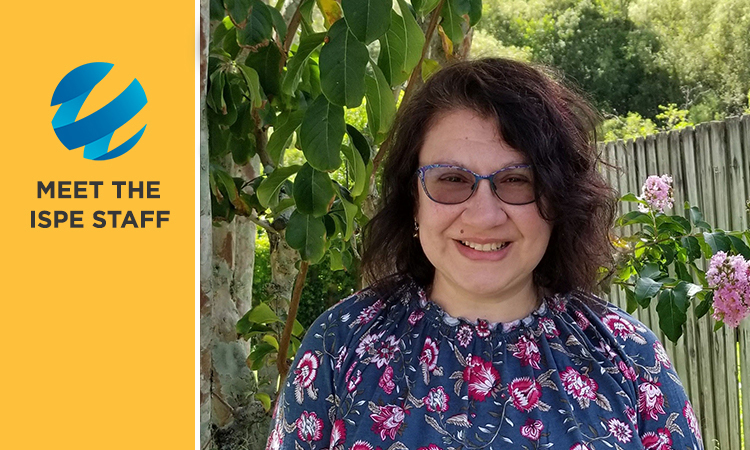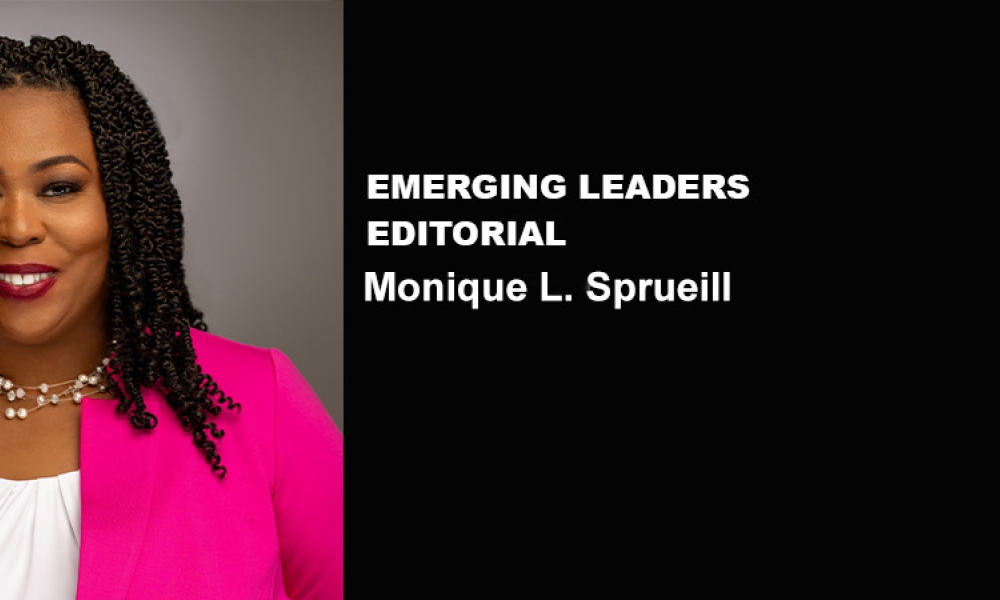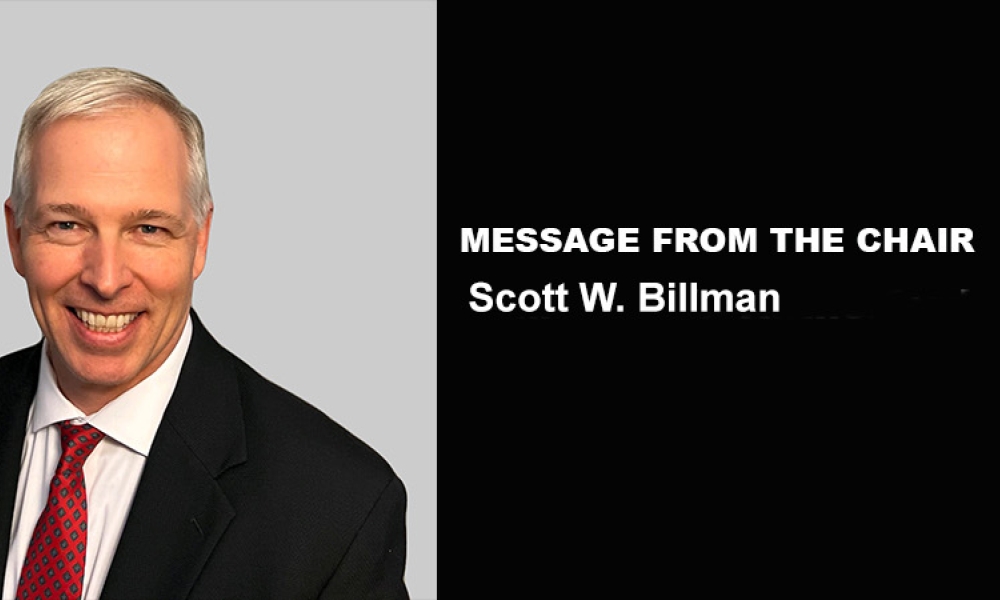ISPE Briefs: Finalists and Winners Announced for Two Article of the Year Awards

Pharmaceutical Engineering® has announced the finalists and winners of the Roger F. Sherwood Article of the Year for 2019 and 2020. The 2019 award finalists and winner were not announced last year due to the pandemic. Winners of both awards are being recognized at the 2021 ISPE Annual Meeting & Expo in Boston.
2019 Award
The 2019 award was given to content published during that calendar year. Finalists were selected from 35 feature and technical articles published during calendar year 2019 by a subcommittee of the Pharmaceutical Engineering Committee (PEC).
The 2019 Roger F. Sherwood Article of the Year is “Regulating Online Pharmacies and Medicinal Product E-Commerce” (Nov-Dec 2019) by Sia Chong Hock, Mervyn Ming Xuan Lee, and Lai Wah Chan. The article explores the growth of e-commerce for prescription and over-the-counter (OTC) medicinal products. Online pharmacies offer many advantages to consumers, including lower costs, convenience, privacy, and a wider range of choices. For businesses, using online platforms removes the need for a physical store, helps manage stockkeeping units, and can increase price competitiveness. But online pharmacies come with risks that are a concern for global regulatory authorities. The article explores issues including laws against counterfeit drugs, accreditation systems, and other actions that help protect consumers when they shop for medicines online.
“The issue of supplies that are safe and effective is critical in our society,” said Ferdinando Aspesi, Senior Partner, Bridge Associates International, and Chair of the PEC. “In several countries, products purchased on the internet are not properly regulated or monitored as are those purchased through regular pharmacies. The risk is that consumers may purchase counterfeit products or those from dubious origins, or even products unapproved in that country.
“The message of the winning article is that the industry should continue to work with the regulators across the world to ensure that each country has proper regulations in place and a list of authorized internet sites is available,” Aspesi said. “It will provide assurance to patients that the quality and safety of the products offered is satisfactory. This article covers a review of where these proactive systems are in place and addresses issues of patient care, regulations, and internet technology applicable in a holistic way.
Winners of the 2019 and 2020 Roger F. Sherwood Article of the Year awards are being recognized at the 2021 ISPE Annual Meeting & Expo.
2019 Award Finalists
- “Automated Parts Washer Factory Acceptance Test” (Mar-Apr 2019)
By Olivier Van Houtte, Paul T. Lopolito, Dijana Hadziselimovic, and Neo Aik Ann - “Inline Dilution: An Agile Capability for Downstream Manufacturing” (May-Jun 2019)
By Lindsey Daniel, PE, and Avril Vermunt - “Holistic Control Strategies for Continuous Manufacturing” (May-Jun 2019)
By Christine M. V. Moore, PhD, Thomas P. Garcia, PhD, Douglas B. Hausner, and Inna Ben-Anat - “Accelerated Pharmaceutical Product Development, Registration, Commercialization, and Life Cycle CMC Lessons, Part 1” (Jul-Aug 2019)
By Christopher J. Potter, PhD, Huimin Yuan, PhD, Nina S. Cauchon, PhD, Liuquan Lucy Chang, Derek Blaettler, Daniel W. Kim, PharmD, Peter G. Millili, PhD, Gregory J. Mazzola, Terrance Ocheltree, PhD, RPh, Stephen M. Tyler, Geraldine Patricia Taber, PhD, and Timothy J. N. Watson, PhD - “A New Qualification Approach for Mobile Purified Water Systems” (Jul-Aug 2019)
By Fritz Röder - “Why ISPE GAMP® Supports the FDA CDRH Case for Quality Program” (Nov-Dec 2019)
By Siôn Wyn, Christopher J. Reid, Chris Clark, Michael L. Rutherford, Heather D. Watson, Lorrie L. Vuolo-Schuessler, and Arthur D. Perez, PhD - Winner: “Regulating Online Pharmacies and Medicinal Product E-Commerce” (Nov-Dec 2019) By Sia Chong Hock, Mervyn Ming Xuan Lee, and Lai Wah Chan
2020 Award
The 2020 award is awarded this year to recognize content published in 2020. Finalists were selected from 35 feature and technical articles published during calendar year 2020 by a subcommittee of the PEC.
The 2020 Roger F. Sherwood Article of the Year is “Implementation of a Formal Energy-Efficient Design Process” (March-April) by Aoife Hamill, BE MSc, John Hanley, PhD, MPhil, CEng, and Vincent Lane. The article describes a formal energy-efficient design (EED) process that has been in use across all industries in Ireland since 2014 and addresses the benefits of integrating this type of study into the design process. Improving efficiency in a highly regulated environment can be a challenge, but companies in even the most regulated industries in Ireland (e.g., pharmaceutical, biopharmaceutical, and semiconductor manufacturers) are adopting the methodology. The article was derived from the authors’ experiences across many projects and in the development of the Irish standard I.S. 399, which establishes energy-efficient design as a management system (complementing ISO 9001 and ISO 50001). It provides companies with a robust strategy for delivering energy, environmental, quality, and competitiveness objectives.
“The article deserves the award because it describes a proactive methodology for the implementation of a formal energy-efficient design process that addresses both energy consumption and long-term sustainability,” said Aspesi. “Our society is facing a major challenge in climate change and we need to minimize the use of energy and the release of emissions to produce energy.
“The article covers an example of proper management (including manufacturing process design) of the energy required to produce our products. It addresses the paramount need to minimize the CO2 release in the atmosphere and to contribute to industry and world sustainability. The article shows the applicability of this approach in three different manufacturing processes where the manufacturing of an active pharmaceutical ingredient is usually the most energy-intensive manufacturing process in the pharmaceutical industry.” Aspesi added, “It is commendable that the Irish authorities and the Irish pharmaceutical industry have taken this approach not only to reduce costs but also to address the common good of society.”
2020 Award Finalists
- “Evaluation of Visual Inspection in Parenteral Products” (Jan-Feb)
By Sambhujyoti Das - Winner: “Implementation of a Formal Energy-Efficient Design Process” (Mar-Apr)
By Aoife Hamill, BE MSc, John Hanley, PhD, MPhil, CEng, and Vincent Lane - “Good Engineering Practice in Risk-Based Commissioning & Qualification” (May-Jun)
By William Bennett, PMP - “Chlorine Dioxide Gas Decontamination vs. Liquid Disinfection” (Mar-Apr)
By Jennifer A. Longstaff - “ICH Q12: A Transformational Product Life-Cycle Management Guideline” (May-Jun)
By Eli Zavialov, PhD, Albert V. Thomas, Saroj Ramdas, Terrance Ocheltree, PhD, RPh, and Connie Langer - “Quality & Regulatory Solutions for PAT in Continuous Manufacturing” (Sep-Oct)
By Gabriella Dahlgren, PhD, Kevin A. Macias, Antonio R. Moreira, PhD, Duncan R. Thompson, Christoph Herwig, PhD, Robert Dream, PE, CPIP - “Operational Risk Management in Global Supply Scenarios” (Nov-Dec)
By Klaus Finneiser
About the Award
ISPE’s Roger F. Sherwood Article of the Year award was established in 1993 to increase article submissions and improve the quality of those received. In the early years, judges rated each issue’s technical articles against a set of six criteria, then selected an annual winner.
Almost three decades later, while recognizing the merit of the original intent, the award has been refreshed to showcase the best content in Pharmaceutical Engineering, increase industry recognition, highlight ISPE’s reputation as a global knowledge leader, and bolster magazine content quality.
Although various judges have taken part in assessing articles over the years, one constant remains: recognition of quality and excellence in content through identifying finalists and a single winning article for each publication year.
Congratulations to all finalists and winners!
Pharmaceutical Engineering® Wins Award for COVID-19 Special Report
Pharmaceutical Engineering has been recognized for the second year in a row with an award for its content. The magazine received a 2021 APEX Award of Excellence for the four-article “Special Report: COVID-19 Impact,” published in the July-August 2020 issue. The recognition was in the category of COVID-19 Media–Government/Association content.
The Special Report was developed early in the pandemic, during April and early May of 2020. It provided a look at how leaders in ISPE saw the situation from both industry and personal viewpoints, as well as touching on several important areas including managing drug shortages, pandemic preparation, and a primer on vaccine development. The Special Report included these articles:
- “Pharmaceutical Engineering COVID-19 Impact Survey: How the Industry Is Responding to the Pandemic” by Susan Sandler
- “Engage with Health Authorities to Mitigate and Prevent Drug Shortages” by Deborah Tolomeo, Karen Hirshfield, and Diane L. Hustead
- “Pandemic Preparedness and Business Continuity” by Wendy Haines
- “How Vaccines are Developed” by Frieda Wiley
The APEX awards are an annual competition for publishers, editors, writers, and designers who create print, web, electronic, and social media. Managed by Communications Concepts, Inc., the awards recognize excellence in publishing by professional communicators. The APEX Awards are based on excellence in graphic design, editorial content, and the ability to achieve overall communications excellence.
New Good Practice Guide on Reverse Logistics Solutions for Clinical Trials
The number of clinical trials conducted across the globe rises each year as researchers and pharmaceutical companies strive to develop new or improved medicinal products that will ultimately improve lives. The pharmaceutical industry has developed standards and best practices in almost every aspect of a trial. However, there is one area that lacks foundational best practices: medicinal product accountability, reconciliation, and return for destruction—also known as reverse logistics.
“The new ISPE Good Practice Guide: Investigational Medicinal Product Reverse Logistics—Good Returns and Reconciliation Practices is the first collection of best practices in reverse logistics for the investigational product supply chain,” said Guide Team Member Cat Hall, Vice President, endpoint Clinical. “It includes steps to plan for and implement a successful reverse logistics process within any investigational supply chain and outlines areas of consideration when defining reverse logistics processes within an organization.”
Most current reverse logistics processes lack effective planning, thorough application of risk management, and well-defined roles and responsibilities. This results in inefficient and costly processes that often cause delays in study closure as failure to account for study materials can affect the acceptability of trial data. Establishing better standards is also complicated by gaps in and lack of harmonization between good clinical practice (GCP), good manufacturing practice (GMP), local environmental laws and regulations, and import/export and customs regulations.
Written by top experts in the field, the guide includes an outline of the aspects to consider to effectively manage investigational product returns and discusses the key requirements of a good reverse logistics process and common pitfalls to avoid. Topics covered include regulations, product characteristics, trial conduct considerations, logistics, and the use of technology. Additionally, a timeline of activities is presented as an example checklist of best practices.
Meet the ISPE Staff: Lynda Goldbach

In each issue of Pharmaceutical Engineering®, we introduce a member of the ISPE staff who provides ISPE members with key information and services. Meet Lynda Goldbach, Manager of Publications, Publications Department.
Tell us about your role at ISPE: what do you do each day?
I work primarily on our Guidance Documents, assisting our volunteer teams through the development process, and manage the publication of all the guides. I also do the final production for both print and electronic versions. I used to work on PE magazine, in the marketing department producing our brochures, newsletters, and other promotional pieces, and managed our member database when we had a lot fewer members.
What do you love about your job?
I love working with our members and learning about all the different areas of the pharmaceutical industry. One of my favorite things is taking the rough-looking guide drafts and turning them into a real “book.”
What do you like to do when you are not at work?
I like to spend time with my husband and daughters, either at home crafting or at Disney World (our “second home”). I also enjoy teaching tricks and agility moves to our two Australian shepherds.
Celebrating 35 Years at ISPE
On October 29, 1986, a nervous teenager started her first day at ISPE. She was hired to perform data entry on a temporary, part-time basis. At the time, there were six people on staff, including the new hire and Executive Director Bob Best, and less than 2,000 members. The small staff size meant it would be “all hands on deck” for every facet of operations. It also meant that this new part-timer had the opportunity to learn anything she wanted to about ISPE—and so she did. She worked on Pharmaceutical Engineering, produced countless materials for the marketing department, and managed the member database. Eventually, she found her home in Guidance Documents in 1998.
Thirty-five years, four CEOs, 46 ISPE employees, and 16,000 members later, this nervous teenager has evolved into one of the most important contributors to ISPE as an organization, and to the industry as a whole. A skilled graphic designer and production/layout professional, her mark is on all Guidance Documents produced by ISPE, with the exception of one (if you’re curious, the first Baseline Guide on Bulk Pharmaceutical Chemicals). She’s collaborated with hundreds of volunteers to develop our prestigious ISPE Guidance Documents, the gold standard in the industry. To date, she has worked on a total of 240 unique products in the Guidance Documents space, including bound, PDF, CD, and myriad translated editions!
Please join me in thanking Lynda for her dedication and contributions to the organization and industry and congratulating her on a very happy 35th ISPE Work Anniversary!
Rochelle May, Senior Director, PublicationsPE Magazine Wants Your P+E!
Tell us about your Chapter and Affiliate events and conferences, trainings and Women in Pharma® meetings, Emerging Leaders activities, and Communities of Practice and Special Interest Group work, and we’ll share it with all of ISPE in Pharmaceutical Engineering’s People+Events (P+E) section. Be the reporter and we’ll be the editor, helping you share your information in the magazine.
Please submit articles and short items for ISPE Briefs to Susan Sandler —ISPE Briefs can be up to 400 words, articles can be up to 1,000 words. Photos are welcome: at least 300 dpi o
.jpg)




